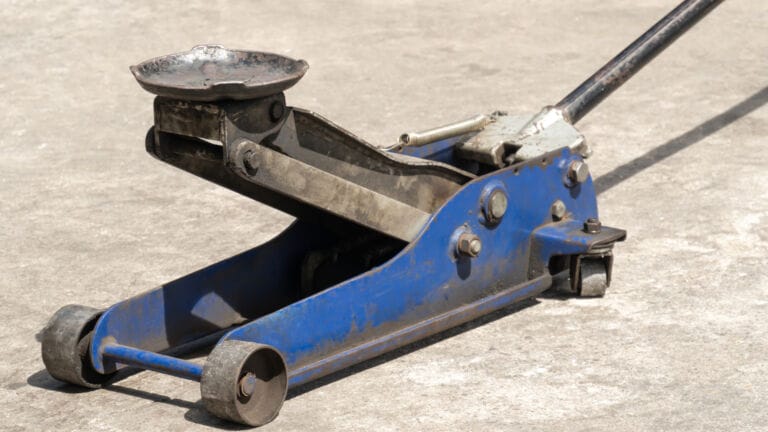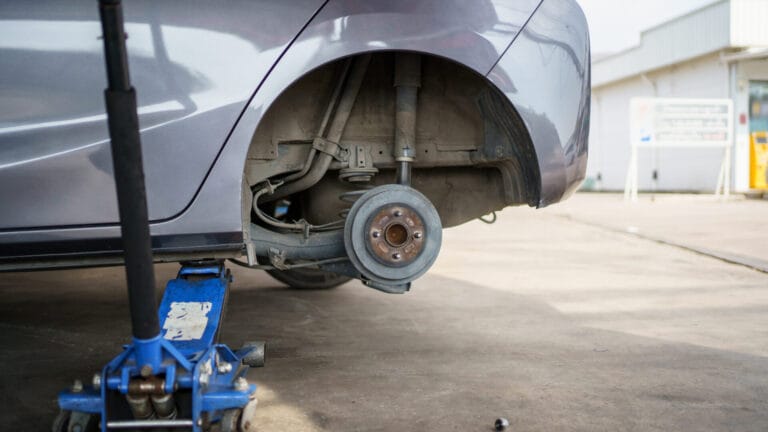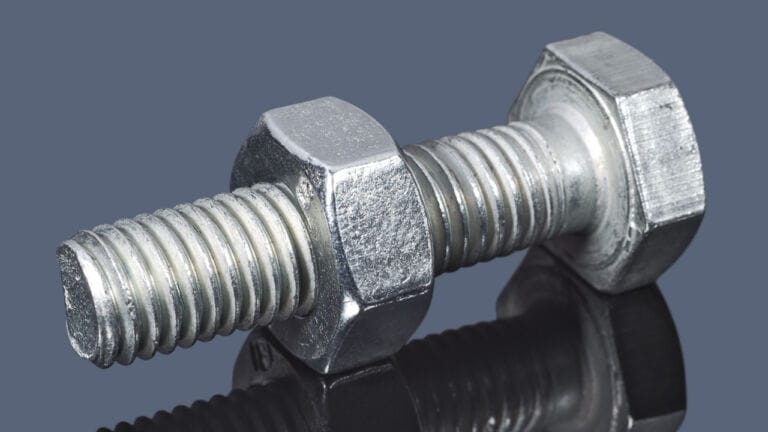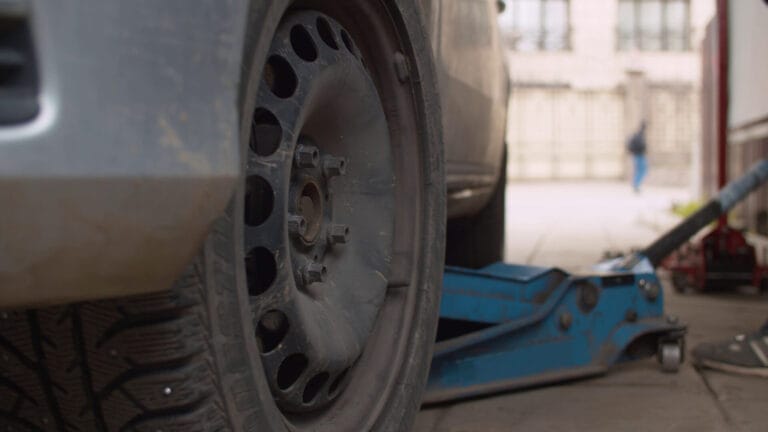Can You Use HVAC Tape on a Muffler?
While on a lengthy road trip, far from the closest town, you hear something strange coming from your car’s muffler. Paranoid about the situation, you begin to question, Can you use HVAC tape on a muffler?
The short answer is
That there are some significant restrictions when using HVAC tape on a muffler. It is used to seal ductwork joints and cannot stop heat transfer. Aluminum tape, which is like HVAC tape, is also unsuitable for use in exhaust systems. It is insufficient for exhaust repairs; however, it might be useful for covering bodywork gaps and other surface applications.
We’ll discuss in this guide when HVAC tape might be appropriate and when it’s better to look for other solutions to your muffler problems.
- What Is HVAC Tape and What Is It for?
- The Value of Functional Mufflers
- Can HVAC Tape Be Used on a Muffler?
- Why It’s Not Advisable?
- Best Time to Apply HVAC Tape to a Muffler
- Benefits and Drawbacks of HVAC Tape
- Alternative Short-Term Remedies
- Is HVAC Tape Effective in Securing a Loose Muffler?
- Frequently Asked Questions
- End Quote
What Is HVAC Tape and What Is It for?
HVAC tape, also known as heating, ventilation, and air conditioning tape, is a kind of tape that is frequently used in duct insulation and joint sealing HVAC systems.
It is well-known for its adhesive qualities and resilience to temperature changes that are frequently experienced in heating and cooling systems.
But it’s important to realize that because of its limitations, HVAC tape isn’t appropriate for every application.
The Value of Functional Mufflers
Your car’s muffler is essential for lowering engine noise and managing exhaust pollutants. It is a substantial part of the exhaust system that channels dangerous gases out of the car and the engine.
In addition to lowering noise pollution, a well-functioning muffler is crucial for your car’s overall performance and safety.
Can HVAC Tape Be Used on a Muffler?
Because it’s readily available and has adhesive qualities, HVAC tape might have been used by some people as a temporary repair for a muffler problem, but it’s not a long-term or appropriate solution. The extreme heat, vibrations, and adverse environments that a muffler is subjected to are beyond the capabilities of HVAC tape.
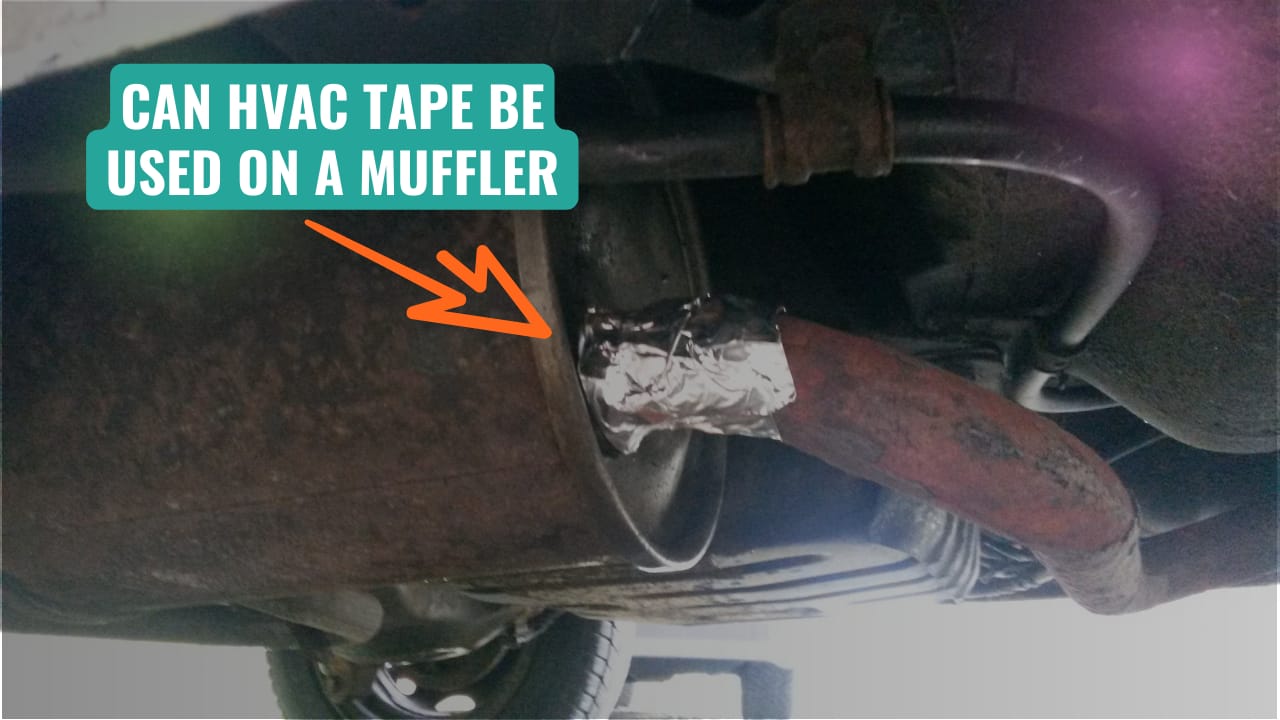
At most, applying HVAC tape to a muffler might provide a temporary remedy, but this is not a dependable or secure method.
Why It’s Not Advisable?
In this segment, we will discuss the various reasons why using HVAC tape on your car’s mufflers isn’t the best option out there.
High Temperatures
You already know that mufflers are exposed to extremely high temperatures due to the hot exhaust gases that flow through them. HVAC tape isn’t made to handle heat this intense.
In these kinds of conditions, the adhesive on HVAC tape can break down quickly, losing its effectiveness and bond. As a result, the muffler may not be adequately sealed, or the tape will peel off.
Carbon Monoxide Hazard
Using HVAC tape incorrectly can lead to dangerous outcomes, such as a carbon monoxide leak. Since carbon monoxide has no color or smell, it is challenging to identify when it is present.
Carbon monoxide and other nasty byproducts get created when engines burn fuel. Exhaust systems are designed to vent those toxins safely away from passengers.
If you have cracks or holes in the exhaust, those gases can leak into the cabin and cause real harm to people’s health. We’re talking carbon monoxide poisoning, even death in bad cases.
So slapping HVAC tape over exhaust problems might seem like a quick fix, but you’re playing with fire – literally. That tape can’t take the heat and pressure, so it could peel off and let carbon monoxide leak in.
It is better to get exhaust issues fixed right using heavy duty, high heat exhaust components.
Smoking and Toxic Emissions
HVAC tape, similar to aluminum tape, can be dangerous in hot environments. It may release smoke and a smell similar to burnt plastic when heated.
This raises the possibility of a fire hazard and releases dangerous chemicals into the atmosphere, which may have an impact on health.
Poor Fit and Seal
It is not recommended to use tape to seal poorly done welds or to fix fitting concerns with the muffler.
Such improvised fixes run the risk of causing leaks, which would jeopardize the exhaust system’s structural stability and performance.
It is imperative to address weld and fitting issues with appropriate mechanical repairs rather than using tape as a stopgap measure to guarantee both safety and optimal performance.
Problems with Durability
Mufflers must withstand a lot, such as dampness, road debris, vibrations, and other elements of the environment. HVAC tape isn’t designed to avenge these kinds of situations.
It Isn’t Strong Enough for Long-Lasting Repairs on a Car’s Exhaust Systems.
Applying HVAC tape to your mufflers may cause it to fail earlier than expected and require more repairs.
Ineffectiveness for Bigger Problems
The prime uses of HVAC tape are in the insulation and joint sealing of air conditioning and heating systems.
It works for relatively minor muffler problems but not for larger, more serious concerns like massive holes, extensive rust, or structural damage.
Safety Concerns
The entirety of your and your car’s safety depends on the important car parts, particularly the exhaust system components.
If you install HVAC tape on a muffler, for example, you run the risk of endangering the lives of the people inside your car. One major concern is the possibility of exhaust leaks, which might allow carbon monoxide to enter the cabin.
Furthermore, placing tape on a muffler that isn’t made for high-temperature applications could result in a fire.[L1]
Best Time to Apply HVAC Tape to a Muffler
Since you inquired specifically whether you can use HVAC tape on your muffler or not, we are guessing it can be for desperate measures. Hence, we emphasized on two different scenarios when HVAC tape can be used.
Minor and Temporary Repairs
For very minor problems, including tiny surface cracks or pinhole-sized leaks in the muffler, HVAC tape may be used as a temporary fix.
It might offer a speedy temporary solution in an emergency when repairs must be done right away until more extensive work can be done.
Restricted Alternatives
HVAC tape can be an easily accessible solution for a temporary fix to get you to a safer area or a repair shop if you find yourself in a remote region without access to specialized automobile repair materials and tools.
Benefits and Drawbacks of HVAC Tape
For a better and clearer understanding, have a look at the advantages and drawbacks of using HVAC tape on your mufflers.
Advantages
Quick Fix: In an emergency, HVAC tape can offer a workable, short-term solution.
Easily Acquired: Hardware stores frequently carry HVAC tape, making it easily accessible.
Drawbacks
Temporary Fix: HVAC tape should only be applied as a temporary fix and should not be used as a long-term solution.
Limited Effectiveness: It might not be able to adequately secure more serious or larger muffler problems.
Alternative Short-Term Remedies
Other items and techniques that can be employed in the interim include—
Exhaust Repair Tape
Specifically made for car exhaust systems, this tape is more resilient to extreme heat and weather than HVAC tape.
Muffler Patch Kits
These kits frequently come with epoxy or putty that can withstand heat and be used to temporarily patch tiny cracks and holes.
When to Seek Professional Advice?
It’s critical to understand when to get expert assistance.
Here, it is advisable to seek the advice of a qualified mechanic if your muffler problem is severe, such as if there is significant rust, huge holes or structural damage, or if you are unsure of the gravity of the issue.
They can ensure the safety and functionality of your car by doing the required repairs or replacements and offering an accurate assessment.
Is HVAC Tape Effective in Securing a Loose Muffler?
Using HVAC tape to secure a loose muffler is not recommended, as it is not designed to handle high temperatures or vibrations. It is important to address the underlying issue causing the muffler to loosen, instead of relying on a temporary fix. Ignoring this problem can result in possible accidents or damage if the battery disconnects while driving. Seek professional assistance to ensure a secure and safe solution for your vehicle.
Frequently Asked Questions
Can exhaust leaks in mufflers be fixed with HVAC tape?
HVAC tape is not a dependable or long-term solution for this issue, although it might be able to temporarily cover small exhaust leaks.
How long is the temporary HVAC tape patch on a silencer expected to last?
HVAC tape on a silencer has varying degrees of durability, but in general, it should only be regarded as an extremely temporary fix. It is imperative to swiftly seek appropriate remedies.
Can I install normal duct tape on a muffler instead of HVAC tape?
Regular duct tape’s poor durability and temperature resistance make it unsuitable for muffler repairs.
Should I take any safety measures if I temporarily install HVAC tape on my silencer?
If the repair is not airtight, there is a chance that carbon monoxide will build up. Therefore, make sure the automobile has enough ventilation when it is operating. Keep an eye out for indications of tape degradation.
Is it okay to apply HVAC tape to pipes or joints in my car’s exhaust system?
Automotive exhaust systems should not use HVAC tape, which is primarily intended for use with HVAC systems. In these situations, it is preferable to use materials made especially for exhaust repairs.
End Quote
So, can you use HVAC tape on a muffler? Yes, you can, even though it’s not the safest option out there.
HVAC tape can temporarily resolve small muffler problems, but it’s important to be aware of its limitations and take into account substitute materials made for automobile exhaust systems.
The best course of action to guarantee the long-term dependability and safety of your car is to see a skilled mechanic for major muffler issues.
If you have any further queries, feel free to let us know. Always a delight to help!

